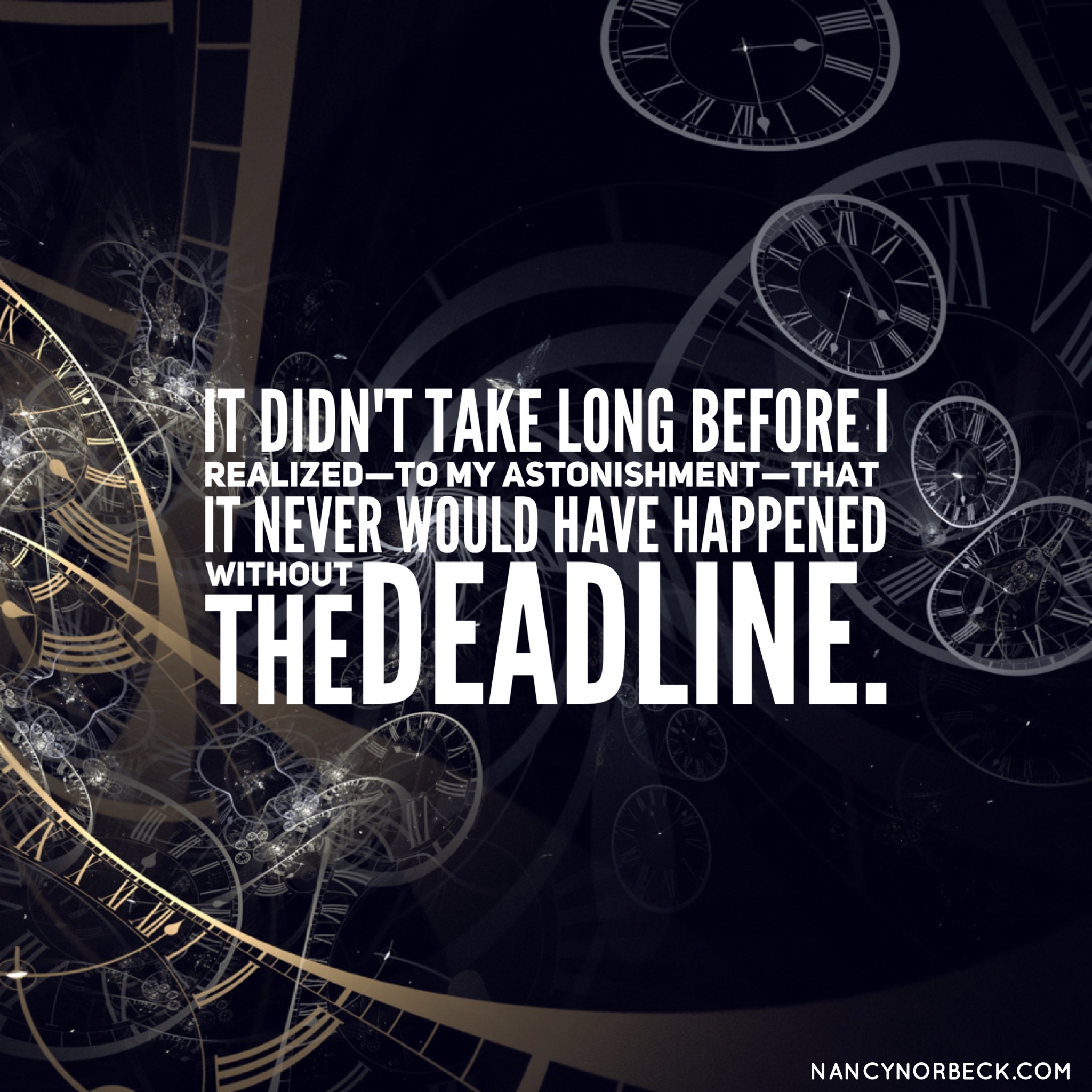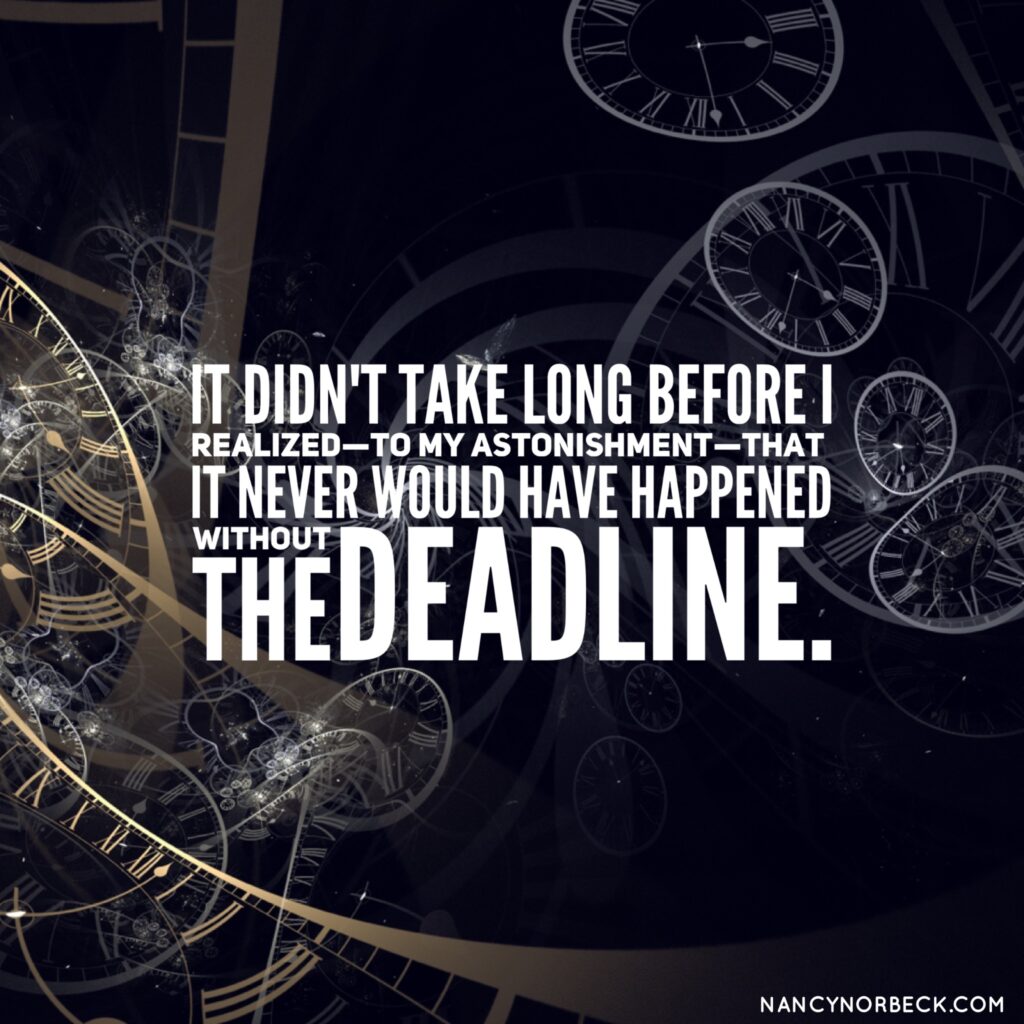For a very long time, I thought deadlines were evil: the demarcation of an arbitrary limit that would deny my free-flowing creativity and make me a miserable person. That was my experience all through school. I hated the damn things and was amused by Douglas Adams’s declaration that “I love deadlines. I like the whooshing sound they make as they fly by.”
Then I went to Goddard College for my first MFA residency. It would be no exaggeration to say that I sat there, terrified, in our first orientation session, as I listened to our program director outline the program for us. The reality of it all whacked me over the head and landed in the pit of my stomach with a distinctly uncomfortable THUD. I hadn’t really understood just how much work I was signing up for.
I knew I’d be doing a full-time grad school program while also teaching full time, but I hadn’t have the sense until that moment to be completely overwhelmed by the idea. The result wasn’t pretty. Everything in my body screamed “Go get your stuff, load up the car, and GET OUT OF HERE NOW.”
I didn’t, and as a result, I made a new best friend: the deadline.
Every three weeks for fifteen weeks (one semester), my classmates and I would send a packet of about 40 pages of work to our advisors. A lot of that was original writing, a smaller chunk was critical writing based on a whole lot of reading. There was also a letter about how we were doing, what issues we were encountering, etc. That’s a good deal of work in a three-week period. I gave myself Friday nights off, but otherwise, I spent two years doing very little outside work except…work.
So many times, the final week would come and I would look at my packet work in a panic. I hadn’t written a critical piece yet. I was short ten pages of new fiction—and I had no idea what needed to happen next. The calendar taunted me. “Only five days!” it would seem to say. “How ya gonna get THAT done?”
Packet after packet after packet, I got it done. It didn’t matter that I didn’t know how. It got done. Was it always great? Of course not. But it was the best I knew how to do, and it often raised interesting questions for discussion in my letter, and it all fed the growth and learning process.
It didn’t take long before I realized—to my astonishment—that it never would have happened without the deadline. If I’d been left to my own devices, I’d probably still be floundering through the process of writing my book. Deadlines made it happen, because it had to. Why? Because there was not a chance in hell I was going to have to explain why I was late. No way did I want to go there.
That’s the catch, though: deadlines have to be credible. A deadline I set with myself for some date I’d like to meet, knowing that I don’t actually have to, does not have the power of a deadline that requires some sort of actual accountability, be it to a friend you don’t want to disappoint, a competition, or an ideal publication date.
Deadlines apply the sort of positive pressure that pushes our creative faculties into action. I still believe that they’re magical, for this very reason, and sometimes, when I feel lost on a project, I beg for a good, credible deadline to get things moving again. Please, my dear friend, jump start this work for me.
I’ve never had it fail.


